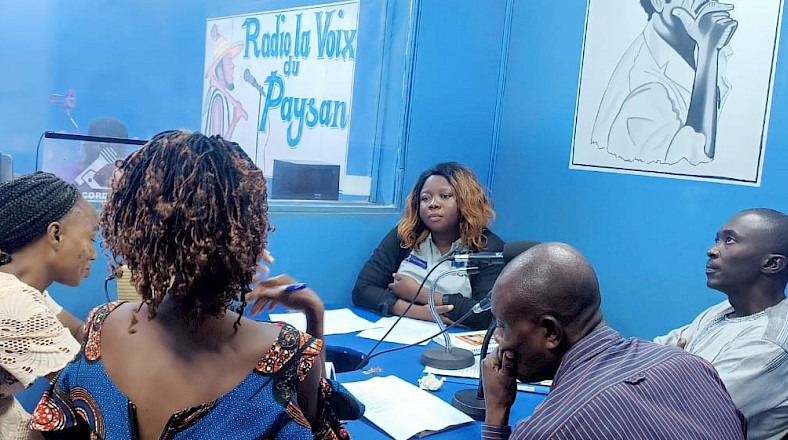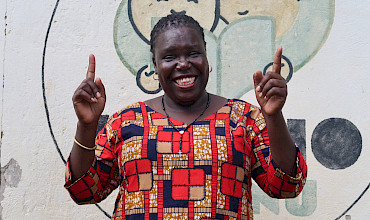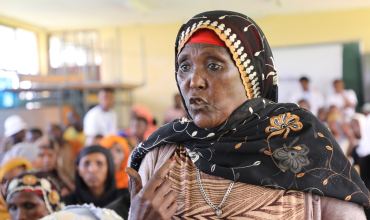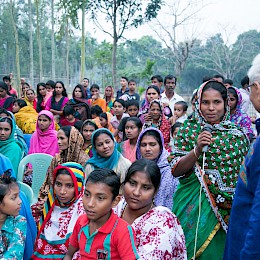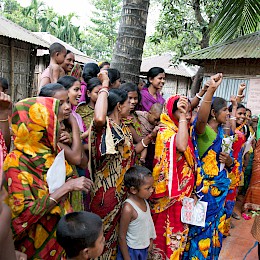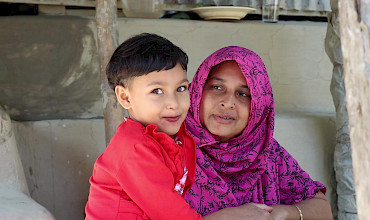
This week marks the start of the UN Water Conference in New York. Right2Grow conducted consultations with local communities in South Sudan, Mali, Burkina Faso, Bangladesh and Uganda to identify priority areas for advocacy. The consultations resulted in a range of priorities: interlinked solutions, access to water and sanitation, gender, and locally-ground policies.
The need for policy choices to match local realities came up again and again. In Right2Grow, we strongly believe in putting local communities’ voices front and center. We asked Bertille Zoungrana, who works on advocacy for AMR in Burkina Faso, to explain how she intends to represent Burkinabe communities at the UN Water Conference, and how she’ll continue her advocacy efforts afterwards.
Dakar to New York
Last year, Bertille participated in the UN Water Conference in Dakar. During the event she challenged representatives of national governments on their commitment to involving civil society organizations (CSOs) in WASH decision-making bodies. Her experience strengthened her resolve to ensure that communities were consulted about what issues they come across at home. In Burkina, the Right2Grow partners conducted exchange meetings and consultations with communities to identify their needs. The meetings involved community leaders, technical experts and civil society organizations, and led to the formulation of priority messages.
Participating online, Bertille will bring these messages to the UN Water Conference, allowing communities to showcase their know-how in water and sanitation, while also calling for further attention in areas where support is lacking.
Bringing it back down to the local level
In Burkina, the Right2Grow partners are working hard to take what they hope to learn by participating in the UN Water Conference home to Burkina.
“I’d like to draw best practices around access to water and sanitation and bring them back to the communities of my country, more specifically those of the North, Centre-North and East of Burkina,” says Bertille. Through her exchanges with other participants in the conference, and what she strives to gain from her own participation, Bertille hopes to collect new ideas and strategies that she can help to put in place at home.
“The conclusions and recommendations of this conference are of paramount importance for the Government of Burkina Faso. Our contribution, and hopefully also that of other countries and partners, will constitute a usable knowledge base for the authorities in Burkina. We will help to introduce best practices so they can help the Burkinabe people.”
Linking levels of advocacy
Participating in the UN Water Conference offers Bertille and other local CSOs the opportunity to strengthen their advocacy efforts, linking their efforts at the local and national level to the movements taking place internationally.
“For ourselves, we will use what we’ve learned as evidence to feed into our advocacy actions for water. AMR, as a civil society organization working on WASH, participates in community consultation frameworks for advocacy on WASH-related issues. We’ll take our advocacy to the airwaves, spurring dialogue on the radio to hold authorities accountable on meeting WASH priorities. By participating at the UN Water Conference, we’re collecting evidence to strengthen our arguments in the spaces for dialogue we’ve opened for local communities. There, communities can demand accountability for better access to water.”
Back to overview